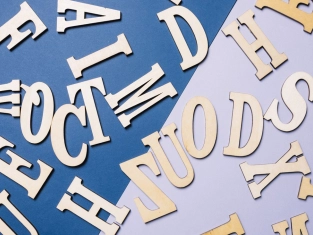by PushtoLearn
Verbos frasales con "get" en inglés y cómo utilizarlos
Tabla de contenidos
Ejercicios sobre los verbos frasales con "get"
Estos ejercicios se enfocan en los verbos frasales con "get".
Lista de verbos frasales con "get"
|
Verbo Frasal |
Definición |
Ejemplo |
|
Get about |
Moverse; viajar |
After the accident, it was hard... |
|
Get above |
Creer que eres mejor que los demás |
Don’t get above yourself... |
|
Get across |
Comunicar con eficacia |
He couldn’t get his point across... |
|
Get across to |
Hacer que alguien entienda |
The teacher struggled to get the concept across... |
|
Get after |
Perseguir |
The coach told the players to get after... |
|
Get ahead |
Progresar |
She worked hard to get ahead... |
|
Get ahead of |
Superar, aventajar |
He managed to get ahead of... |
|
Get along |
Tener una buena relación |
They get along well... |
|
Get along in |
Progresar en un área específica |
She’s getting along in... |
|
Get along with |
Llevarse bien con alguien |
He doesn’t get along with... |
|
Get around |
Evitar algo |
They found a way to get around... |
|
Get around to |
Encontrar tiempo para hacer algo |
I’ll get around to fixing... |
|
Get at |
Alcanzar; insinuar algo |
I can’t get at the top shelf... |
|
Get away |
Escaparse |
The thief managed to get away... |
|
Get away from |
Alejarse de un lugar o situación |
I need to get away from the city... |
|
Get away with |
Salirse con la suya |
He got away with cheating... |
|
Get away! |
Expresar sorpresa o incredulidad |
Get away! I can’t believe... |
|
Get back |
Regresar |
When will you get back...? |
|
Get back at |
Vengarse |
She wants to get back at him... |
|
Get back into |
Retomar una actividad |
He’s getting back into... |
|
Get back to |
Responder o volver con información |
I’ll get back to you later... |
|
Get back together |
Reconciliarse |
They decided to get back together... |
|
Get behind |
Retrasarse |
I got behind on my homework... |
|
Get behind with |
Atrasarse en algo |
He’s getting behind with his rent... |
|
Get by |
Sobrevivir (económica o físicamente) |
They manage to get by... |
|
Get by on |
Sobrevivir con pocos recursos |
He gets by on just a few hours... |
|
Get by with |
Arreglárselas con lo que se tiene |
We can get by with what we have... |
|
Get down |
Desanimar o deprimir |
The gloomy weather is getting me down. |
|
Get down on |
Criticar a alguien |
Don’t get down on yourself... |
|
Get down to |
Enfocarse en algo importante |
Let’s get down to business... |
|
Get in |
Entrar o ser aceptado |
She got in to her dream university. |
|
Get in on |
Involucrarse en algo |
He wants to get in on the project. |
|
Get in with |
Integrarse a un grupo |
She’s trying to get in with the crowd. |
|
Get into |
Empezar a interesarse por algo |
He’s recently gotten into gardening. |
|
Get it |
Entender algo |
I don’t get it. |
|
Get it off |
Quitar algo |
He got the stain off his shirt. |
|
Get it off with |
Tener una relación íntima |
There’s a rumor... |
|
Get it on |
Empezar algo |
Let’s get it on with the meeting. |
|
Get it on with |
Tener una relación romántica |
People think they got it on... |
|
Get it together |
Organizarse |
You need to get it together... |
|
Get it up |
Lograr excitación (contexto sexual) |
He couldn’t get it up... |
|
Get off |
Bajarse de un vehículo; empezar un viaje |
We’ll get off the bus... |
|
Get off it |
Dejar de decir tonterías |
Get off it, you’re exaggerating! |
|
Get off on |
Disfrutar mucho de algo |
She gets off on rollercoasters. |
|
Get off with |
Escapar sin castigo |
He got off with just a warning. |
|
Get off! |
Expresión de incredulidad |
Get off! That’s amazing news. |
|
Get on |
Subirse a un vehículo |
He got on the train... |
|
Get on at |
Criticar constantemente |
She keeps getting on at him... |
|
Get on for |
Estar por llegar una edad o una hora |
It’s getting on for midnight. |
|
Get on to |
Empezar con otro tema |
Let’s get on to the next topic. |
|
Get on with |
Continuar haciendo algo |
I need to get on with my work... |
|
Get onto |
Contactar a alguien |
I’ll get onto the supplier... |
|
Get out |
Salir o escapar |
Let’s get out of here... |
|
Get out of |
Evitar hacer algo |
He tried to get out of doing... |
|
Get out! |
Expresión de sorpresa |
Get out! I can’t believe it’s true! |
|
Get over |
Superar algo |
She’s trying to get over her fear... |
|
Get over with |
Terminar algo desagradable rápido |
Let’s get this exam over with. |
|
Get round/around |
Superar un problema |
They got round the issue... |
|
Get round to |
Finalmente hacer algo |
I never got round to calling... |
|
Get through |
Terminar o completar algo exitosamente |
He got through all his exams. |
|
Get through to |
Lograr que alguien entienda |
I couldn’t get through to her... |
|
Get to |
Llegar a un lugar o punto |
When will we get to the hotel? |
|
Get together |
Reunirse o encontrarse |
Let’s get together for lunch... |
|
Get up |
Levantarse de la cama o de una silla |
I get up at 6 a.m. |
|
Get up to |
Hacer algo, a menudo travieso |
What did you get up to...? |

Cómo usar los verbos frasales con "get" en conversaciones cotidianas
Los verbos frasales son comunes en el inglés hablado, así que practicarlos en conversaciones diarias te ayudará a sonar más natural. Aquí tienes algunos ejemplos reales:
Rutina matutina: "I need to get up early tomorrow to catch the bus."
Vida social: "Do you get along with your neighbors?"
Salud: "After the surgery, it took her a while to get over the pain."
Viajes: "We’ll get off the train at the next stop."
Errores comunes con los verbos frasales con "get"
-
Confusión de significados
Los estudiantes suelen confundir verbos frasales similares, como get off y get out.
Correcto: "We get off the bus at this stop."
Incorrecto: "We get out the bus."
-
Partícula incorrecta
Usar una partícula equivocada puede cambiar completamente el significado.
Correcto: "She got over her fear of flying."
Incorrecto: "She got on her fear of flying."
-
Errores de tiempo verbal
Recuerda conjugar correctamente el verbo get:
-
Presente: I get up.
-
Pasado: I got up.
-
Futuro: I will get up.
Consejos para aprender los verbos frasales con "get"
-
Practica en contexto: Haz oraciones con cada verbo frasal para entender su uso.
-
Usa tarjetas didácticas: Escribe el verbo de un lado y su significado y ejemplo del otro.
-
Mira series en inglés: Escucha cómo se usan en diálogos reales.
-
Agrúpalos por temas: Aprende verbos relacionados con situaciones específicas como viajes o emociones.
FAQ
¿Qué es un verbo frasal con "get"?
Es una combinación del verbo get y una partícula (como up, over o off) que cambia su significado. Por ejemplo, get upsignifica levantarse de la cama.
¿Cómo puedo memorizar los verbos frasales con "get"?
Practícalos en contexto, usa tarjetas didácticas y agrúpalos por temas como viajes, relaciones o rutinas diarias.
¿Cuál es la diferencia entre get off y get out?
Get off se usa para transporte público (por ejemplo, autobús, tren), mientras que get out se usa para vehículos pequeños o privados (como auto o taxi).
¿Los verbos frasales son formales o informales?
La mayoría de los verbos frasales, incluidos los de get, son informales y comunes en el inglés hablado.
¿Por qué son difíciles de aprender los verbos frasales?
Sus significados a menudo no se pueden deducir de las palabras individuales y no siempre se traducen literalmente a otro idioma, lo cual representa un reto para los estudiantes de inglés.
